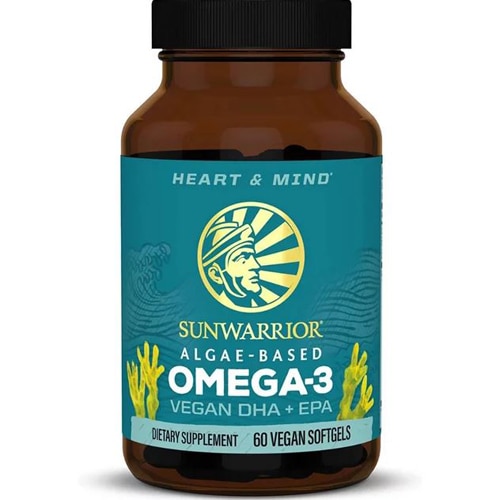[vc_row][vc_column][vc_column_text]The connection between the head and the heart is undeniable. In fact, they frequently engage in an intellectual and emotional tug-of-war.
Below the skin’s surface, our brain and heart — arguably the body’s two most vital organs — may be waging a life-or-death battle that might not be readily apparent.
“Increasing evidence shows that
biological and chemical factors that trigger mental health issues may also influence heart disease,” the American Heart Association points out.

One piece of evidence — a study published in 2023 in the Journal of the American Heart Association — found that
young adults who feel down or depressed are more likely to develop cardiovascular disease and experience poor heart health.
“When you’re stressed, anxious or depressed, you may feel overwhelmed, and your heart rate and blood pressure rises. It’s also common that feeling down could lead to making poor lifestyle choices like smoking, drinking alcohol, sleeping less and not being physically active — all adverse conditions that [negatively] impact your heart,” cardiovascular specialist Garima Sharma, senior author of the study, says in a
Johns Hopkins Medicine news release.
Dr. Yaa Adoma Kwapong, a cardiovascular specialist and lead author of the study, emphasizes that the relationship between heart disease and depression “is a two-way street.” Depression bumps up your risk of heart problems, Kwapong says, and people with heart disease experience depression.
Another bit of evidence regarding the ties between mental health and heart health: A paper published in 2020 by the journal Heart, Lung and Circulation noted that by middle age,
women diagnosed with clinical depression are twice as likely to experience cardiovascular disease than those without clinical depression. Heart disease ranks as the
No. 1 cause of death among women in the U.S.
The connection between mental health and heart health
So, just what is the connection between mental health and heart health?
The U.S. Centers for Disease Control and Prevention (CDC) explains that
people coping with depression, anxiety, stress or PTSD over a long period may develop certain conditions such as increased heart rate, increased blood pressure, reduced blood flow to the heart and heightened levels of cortisol (the so-called “stress hormone”). This then can trigger heart disease, metabolic disease (a group of risk factors for cardiovascular disease) and calcium buildup in the arteries (the primary cause of heart attacks).
Here’s a bit of a deeper dive into five potential mind-related contributors to heart issues:
- As many as 15% of people with cardiovascular disease grapple with major depression. On the other hand, some people with no history of depression become clinically depressed after a heart attack or open-heart surgery, according to Edward-Elmhurst Health.
- Harvard Health Publishing says anxiety disorders influence “the stress response,” which affects the same brain systems that impact cardiovascular functions.
- Stress caused by work, relationship problems and other issues can elevate heart-unhealthy inflammation, prompt poor sleep, lead to less exercise and set off unhealthy eating.
- People with PTSD demonstrate a greater risk of high blood pressure, high levels of fat (lipids) in the blood, obesity, cardiovascular disease and heart disease.
- Social isolation and loneliness. The CDC says this duo poses “a serious threat to our mental and physical health.”
How to improve your mental health and heart health
Fortunately, you can adopt several behaviors that may help create a cozier relationship between your head and heart:
Get some exercise.
Any number of physical activities, such as cycling, dancing, gardening, jogging, swimming and walking, can help calm your mind and pump up your heart.
Step up your diet.
Make sure you’re consuming an adequate amount of mind- and heart-healthy foods like
fatty fish, fruits, leafy greens,
nuts and whole grains. These components of a good diet won’t immediately fix mental or heart issues, but they can certainly put you on the road toward a healthier you.
Look into dietary supplements.
Although not a substitute for nutrient-rich foods,
supplements containing essential vitamins and minerals may fill a dietary void and help promote a healthier mind and heart. Consult a health care provider or a dietitian before adding dietary supplements to your regimen.
Ditch bad habits.
Smoking tobacco products and downing too much alcohol can do a number on your mental and physical health. Giving up smoking and cutting back on alcohol consumption may just lift your mind
and your heart.
Build a robust support system.
The University of Rochester Medical Center suggests that a strong
network of relatives and friends can aid in easing stress and decreasing your risk of heart disease. “Having at least one person you can rely on takes a heavy burden off you and provides comfort,” the hospital says.
Practice mindfulness.
The Mayo Clinic notes that you can
incorporate mindfulness into your life through methods like
meditating, expressing gratitude, living in the moment, focusing on your breathing and paying closer attention to your surroundings.[/vc_column_text][/vc_column][/vc_row][vc_row][vc_column][vc_text_separator title="Featured Products" border_width="2"][vc_row_inner equal_height="yes" content_placement="middle" gap="35"][vc_column_inner width="1/3"][vc_single_image image="173203" img_size="full" alignment="center" onclick="custom_link" img_link_target="_blank" css=".vc_custom_1708898730992{padding-right: 7% !important;padding-left: 7% !important;}" link="https://www.vitacost.com/1life-science-nad-longevity-cardiovascular-support"][/vc_column_inner][vc_column_inner width="1/3"][vc_single_image image="173201" img_size="full" alignment="center" onclick="custom_link" img_link_target="_blank" css=".vc_custom_1708898746853{padding-right: 7% !important;padding-left: 7% !important;}" link="https://www.vitacost.com/garden-of-life-minami-cardio-omega-3-fish-oil"][/vc_column_inner][vc_column_inner width="1/3"][vc_single_image image="173202" img_size="full" alignment="center" onclick="custom_link" img_link_target="_blank" css=".vc_custom_1708898763931{padding-right: 7% !important;padding-left: 7% !important;}" link="https://www.vitacost.com/vitacost-synergy-mood-plus-with-5-htp-st-johns-wort"][/vc_column_inner][/vc_row_inner][/vc_column][/vc_row]
 One piece of evidence — a study published in 2023 in the Journal of the American Heart Association — found that young adults who feel down or depressed are more likely to develop cardiovascular disease and experience poor heart health.
“When you’re stressed, anxious or depressed, you may feel overwhelmed, and your heart rate and blood pressure rises. It’s also common that feeling down could lead to making poor lifestyle choices like smoking, drinking alcohol, sleeping less and not being physically active — all adverse conditions that [negatively] impact your heart,” cardiovascular specialist Garima Sharma, senior author of the study, says in a Johns Hopkins Medicine news release.
Dr. Yaa Adoma Kwapong, a cardiovascular specialist and lead author of the study, emphasizes that the relationship between heart disease and depression “is a two-way street.” Depression bumps up your risk of heart problems, Kwapong says, and people with heart disease experience depression.
Another bit of evidence regarding the ties between mental health and heart health: A paper published in 2020 by the journal Heart, Lung and Circulation noted that by middle age, women diagnosed with clinical depression are twice as likely to experience cardiovascular disease than those without clinical depression. Heart disease ranks as the No. 1 cause of death among women in the U.S.
One piece of evidence — a study published in 2023 in the Journal of the American Heart Association — found that young adults who feel down or depressed are more likely to develop cardiovascular disease and experience poor heart health.
“When you’re stressed, anxious or depressed, you may feel overwhelmed, and your heart rate and blood pressure rises. It’s also common that feeling down could lead to making poor lifestyle choices like smoking, drinking alcohol, sleeping less and not being physically active — all adverse conditions that [negatively] impact your heart,” cardiovascular specialist Garima Sharma, senior author of the study, says in a Johns Hopkins Medicine news release.
Dr. Yaa Adoma Kwapong, a cardiovascular specialist and lead author of the study, emphasizes that the relationship between heart disease and depression “is a two-way street.” Depression bumps up your risk of heart problems, Kwapong says, and people with heart disease experience depression.
Another bit of evidence regarding the ties between mental health and heart health: A paper published in 2020 by the journal Heart, Lung and Circulation noted that by middle age, women diagnosed with clinical depression are twice as likely to experience cardiovascular disease than those without clinical depression. Heart disease ranks as the No. 1 cause of death among women in the U.S.



